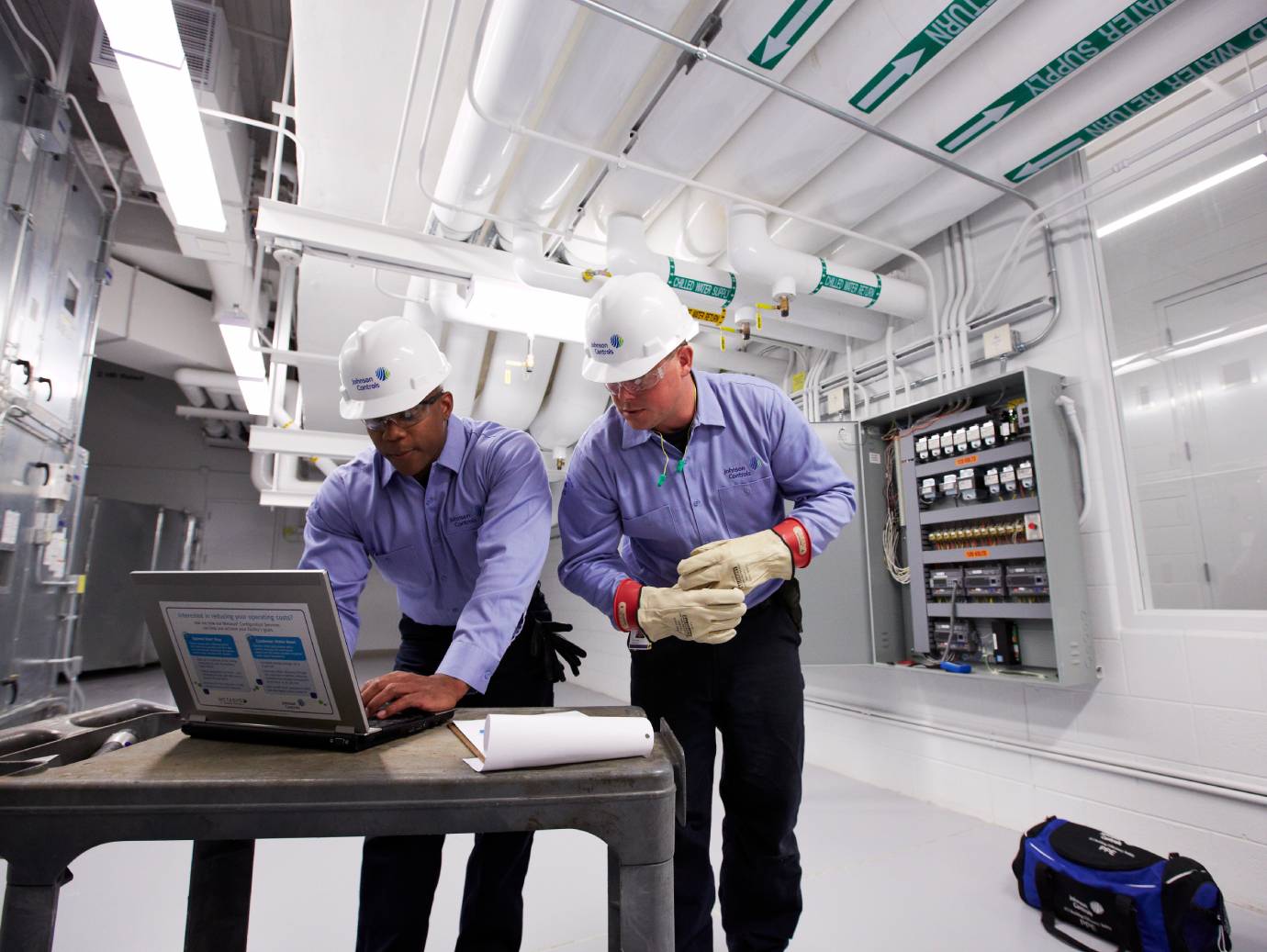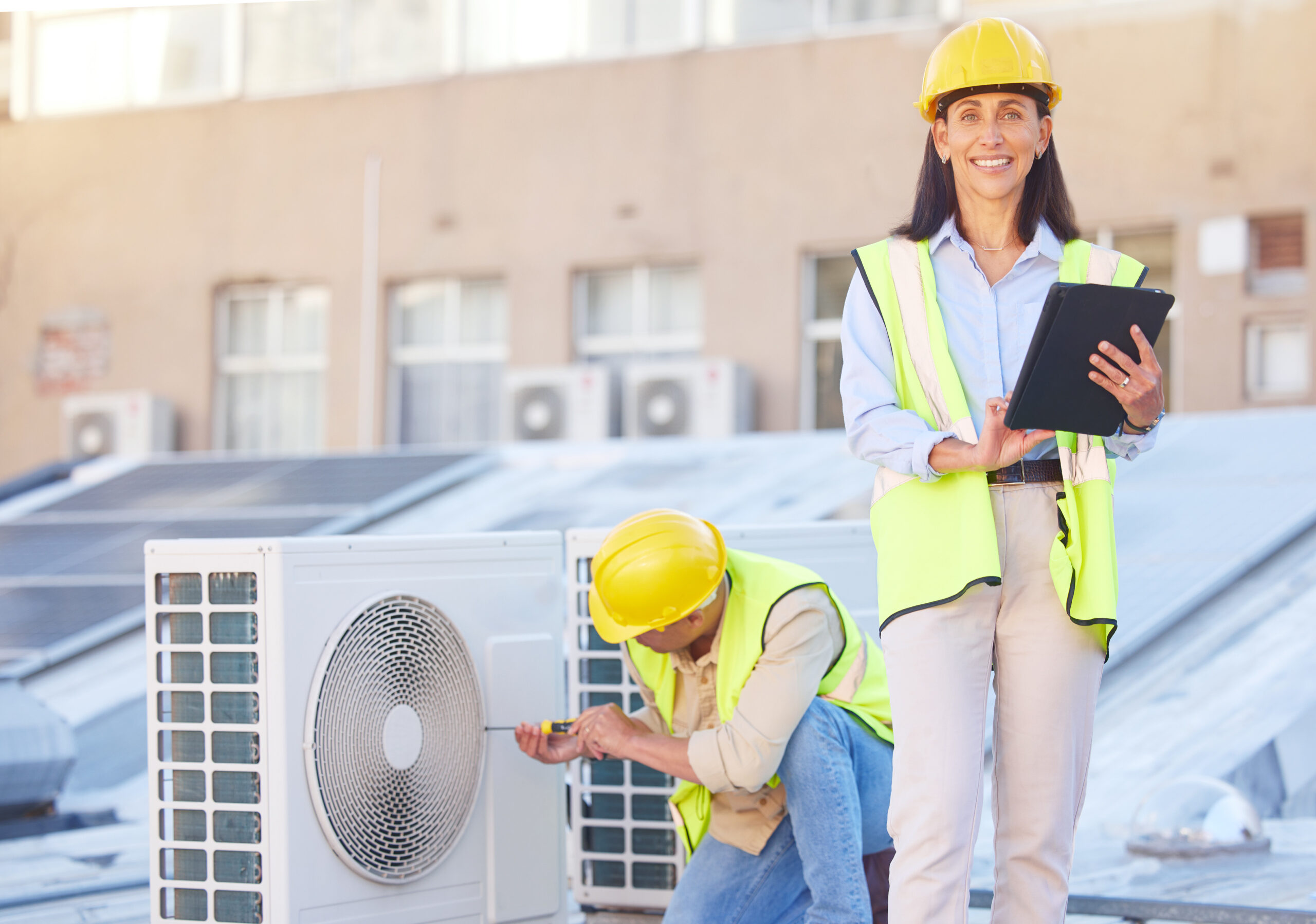Advice from Technicians on heat pump installation ooltewah tn
Advice from Technicians on heat pump installation ooltewah tn
Blog Article
Selecting In Between a Heat Pump and Furnace: Trick Factors To Consider for Your Cooling And Heating Needs
When evaluating home heating choices for a/c requires, the choice between a heatpump and a heating system can be complex. Each system supplies unique benefits customized to particular climates and power effectiveness goals. Comprehending these distinctions is crucial for making an informed selection. Secret factors such as installation expenses and ecological impact better complicate the choice procedure. Which choice genuinely lines up with one's convenience and sustainability preferences? The adhering to sections will certainly explore these factors to consider thoroughly.
Understanding Warm Pumps: Just How They Function and Their Benefits
While lots of home owners think about different home heating alternatives, understanding exactly how heatpump function and their advantages can substantially influence their decision. Heatpump run by moving warm instead of generating it. In the winter season, they extract warm from the outside air or ground and move it inside your home, while in the summer, they reverse this process, cooling down the home by removing heat outside. This dual capability makes them versatile for year-round environment control.One of the key advantages of heatpump is their power performance. They use significantly less power compared to standard heating unit, possibly leading to reduced energy costs (heat pump service). Furthermore, heatpump have a smaller sized carbon impact, making them an eco-friendly option. They likewise call for much less maintenance than conventional systems, contributing to long-lasting expense savings. In general, understanding the technicians and benefits of heatpump can help house owners make notified choices concerning their home heating and cooling down demands
Exploring Heating Systems: Types, Operation, and Advantages
Heating systems are available in different types, including gas, electrical, and oil designs, each with unique functional systems. Understanding these differences is necessary, as they influence performance and heating efficiency. Furthermore, heaters use various benefits, such as regular warm output and integrity in cooler climates.
Kinds of Heaters
Heating unit can vary considerably in style and procedure, with heating systems being a popular option amongst homeowners. There are a number of types of heaters, each utilizing different gas sources and innovations. Gas heating systems prevail, leveraging gas to produce warmth effectively. Electric heating systems, on the other hand, make use of electrical resistance to create warmth, commonly preferred for their simple setup. Oil heating systems, while much less typical, are reliable in locations with limited gas access (heat pump service). Additionally, condensing heating systems optimize power efficiency by catching and reusing exhaust gases. Each kind operates via a system of warm exchangers and ductwork to distribute cozy air throughout a home. Recognizing the differences between these furnace types is vital for notified heating and cooling choices
Benefits of Heating systems
For homeowners seeking dependable warmth throughout cold months, the advantages of heating systems are substantial. Furnaces offer constant heating, making certain even temperatures throughout the home. They are particularly efficient in severe cool, typically outperforming heatpump in freezing conditions. Various types, including gas, electrical, and oil heaters, offer adaptability to fulfill varied demands and preferences.Furnaces likewise often tend to have reduced preliminary installment prices contrasted to heatpump, making them a more obtainable alternative for lots of. Their durable style adds to a longer life-span, with numerous systems lasting over 15 years with appropriate upkeep. In addition, modern-day heaters are usually geared up with innovative technology for enhanced efficiency, which can bring about minimized power costs. Overall, heaters stay a trustworthy selection for effective home heating.

Power Efficiency: Comparing Heat Pumps and Furnaces
When contrasting energy performance in between warm pumps and heating systems, the Seasonal Energy Performance Ratio (SEER) plays an important function in identifying efficiency. In addition, a functional price evaluation reveals the long-term economic ramifications of each system. Understanding these elements can assist homeowners in making educated choices regarding their home heating remedies.
Seasonal Energy Performance Proportion
Energy performance plays a necessary function in the decision-making procedure between warmth pumps and heaters, particularly when thinking about the Seasonal Power Efficiency Proportion (SEER) This statistics steps the cooling effectiveness of warmth pumps over a whole cooling season, providing a standardized way to assess performance. Higher SEER ratings indicate higher power effectiveness, converting to lower energy usage and minimized energy expenses. On the other hand, furnaces are commonly evaluated using the Annual Gas Usage Effectiveness (AFUE) rating, which mirrors heating efficiency. When comparing these two systems, home owners need to focus on SEER rankings for heatpump, as they straight influence general power cost savings and environmental sustainability. An extensive understanding of SEER can notably affect the lasting satisfaction and cost-effectiveness of the selected HVAC service.
Operational Cost Analysis
Recognizing the functional expenses connected with warmth pumps and furnaces is crucial for home owners evaluating their options. Heatpump typically use greater energy efficiency, converting electrical energy right into heat with marginal waste. This causes reduced regular monthly energy bills, especially in moderate climates. On the other hand, typical heating systems, particularly gas designs, may have lower in advance costs but can sustain higher functional expenditures with time because of sustain prices and performance ratings.Moreover, heatpump can function as both heating and cooling systems, possibly reducing the demand for different heating and cooling systems. While initial financial investments for heatpump may be higher, their long-lasting savings in power performance can make them a more cost-efficient selection for many families. Careful evaluation of local energy rates is necessary to figure out the most effective choice.
Installation Costs: What to Expect for each and every Heating System
Installation prices for furnace can vary significantly between warm pumps and heating systems, influencing house owners' choices. Heatpump normally have greater upfront setup expenses, generally varying from $3,500 to $8,000, depending upon the unit dimension and intricacy of installment. This includes the exterior unit, indoor handling system, and needed ductwork alterations. Alternatively, heaters tend to over here have lower preliminary prices, averaging between $2,500 and $6,000, which can be appealing for budget-conscious house owners. Setup expenditures can raise if substantial ductwork is required.Moreover, the selection of fuel type for heating systems-- natural gas, lp, or electric-- can also affect installation expenses. While warm pumps provide energy efficiency, their initial investment might discourage some buyers. Eventually, examining setup expenses together with lasting savings and performance will help homeowners in making educated decisions about their heating unit.
Climate Considerations: Which System Carries Out Much Better in Your Location
Just how do climate conditions affect the efficiency of furnace? The efficiency of heatpump and heaters can differ greatly depending upon the regional climate. In moderate climates, heatpump stand out by successfully moving warm from the outdoors air, making them an energy-saving alternative. Nonetheless, their performance diminishes in exceptionally chilly temperatures, where they might struggle to remove adequate heat. Conversely, heating systems, specifically gas designs, offer consistent and trusted warm despite outdoor conditions, making them more suitable in colder regions.In areas that experience milder winters, heatpump can operate efficiently year-round, giving both heating & cooling. In comparison, areas with severe winters frequently take advantage of the effectiveness of heating systems. Inevitably, comprehending the local climate is vital when determining in between a heat pump and a furnace, as it directly affects their operational performance and overall efficiency.
Maintenance Demands: Long-Term Take Care Of Warm Pumps vs. Furnaces
While both warm pumps and heaters call for normal maintenance to assure peak efficiency, their details demands and care routines vary significantly. Heaters typically need much less frequent focus, with yearly inspections being sufficient to look for gas leakages, clean filters, and examine general capability. Their less complex style usually permits uncomplicated repairs.In comparison, warmth pumps require semiannual maintenance due to their dual duty in cooling and heating. This consists of cleaning coils, checking cooling agent degrees, and making sure that both the interior and exterior systems work at their finest. Furthermore, heatpump upkeep frequently entails even more complex components, making specialist servicing essential.Neglecting upkeep can lead to decreased performance and boosted energy expenses for both systems. Eventually, property owners must think about these long-lasting treatment demands when selecting between a heatpump and a heater, as proactive maintenance can expand the life expectancy and efficiency of either system considerably.
Ecological Impact: Picking a Lasting Home Heating Alternative
The environmental influence of home heating systems is a vital analysis for property owners looking for sustainable options. Heat pumps are usually extra energy-efficient than standard heaters, as they transfer warmth instead than produce it, greatly decreasing carbon emissions. By utilizing eco-friendly energy sources, such as geothermal or air-source heatpump, home owners can even more reduce their ecological footprint.On the other hand, gas heaters release greenhouse gases and add to air contamination, though they frequently offer greater heat outcome. Developments in technology have actually led to the development of high-efficiency heating systems that reduce emissions.Ultimately, try this web-site choosing a home heating system entails evaluating effectiveness against environmental impact. Homeowners are encouraged to reflect on neighborhood power resources and rewards for sustainable systems, making certain an option that straightens with both individual convenience and environmental duty. The decision influences not only instant comfort however also lasting sustainability and environmental health and wellness.
Often Asked Inquiries
How Much Time Do Warm Pumps and Furnaces Usually Last?
The life-span of heatpump usually ranges from 15 to two decades, while heating systems can last in between 15 to 30 years. Regular maintenance substantially influences their longevity and effectiveness in giving home heating solutions.
Can I Make Use Of a Warm Pump in Extremely Cold Climates?
Warm pumps can run in incredibly cold environments, yet their effectiveness diminishes as temperatures drop. In such problems, additional heating sources might be necessary to maintain comfy indoor temperatures and guarantee peak performance.

What Is the Noise Degree of Warm Pumps Versus Furnaces?
The sound levels of warm pumps and heating systems differ considerably. Normally, heat pumps operate even more quietly than traditional furnaces, making them more suitable for those conscious seem, while furnaces may generate louder operational sounds throughout home heating cycles.
Are Warm Pumps Suitable for Both Heating & Cooling?
Heat pumps are certainly appropriate for both cooling and heating (heat pump replacement ooltewah tn). They operate by moving heat, supplying reliable temperature control year-round, making them a flexible choice for home owners seeking an all-in-one cooling and heating service
What Dimension Furnace Do I Required for My Home?
Establishing the proper size heating unit for a home requires evaluating elements such as square footage, insulation high quality, regional environment, and the home's design. Consulting a specialist can assure a precise assessment and perfect convenience. Warm pumps generally use greater energy effectiveness, converting electrical power right into warm with minimal waste. In modest climates, see page warmth pumps succeed by efficiently moving warmth from the outside air, making them an energy-saving alternative. On the other hand, heaters, specifically gas models, give trusted and regular warmth no matter of outside conditions, making them preferable in chillier regions.In areas that experience milder winters months, heat pumps can run effectively year-round, offering both home heating and air conditioning. Warmth pumps are usually a lot more energy-efficient than traditional heating systems, as they move heat instead than generate it, considerably reducing carbon emissions. By utilizing eco-friendly power sources, such as geothermal or air-source heat pumps, house owners can even more decrease their environmental footprint.On the various other hand, natural gas heaters give off greenhouse gases and add to air pollution, though they frequently supply greater heat outcome.
Report this page